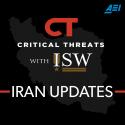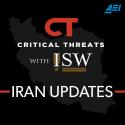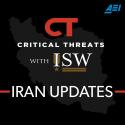Russian Offensive Campaign Assessment, April 17, 2023
Apr 17, 2023 - ISW Press
Wagner Group financier Yevgeny Prigozhin is seemingly regaining some favor with Russian President Vladimir Putin, likely as a result of the Russian conventional military’s inability to accomplish the tasks Putin had set for it during the winter offensive in Donbas. Wagner forces appear to be receiving reinforcements, ammunition, and political recognition – which is a stark deviation from the Kremlin’s previous efforts to expend Wagner forces and Prigozhin in Bakhmut since at least January 2023. Wagner-affiliated sources announced on April 17 that Wagner is training up to three motorized rifle brigades of mobilized personnel to reinforce Wagner‘s flanks in Bakhmut. Prigozhin also confirmed that Russian airborne forces (VDV) are operating alongside Wagner and indicated that Wagner is actively receiving artillery shells. Prigozhin advocated for Wagner to receive more artillery shells, which indicates that Prigozhin has reestablished his supply of ammunition from the Russian Ministry of Defense (MoD). The Russian State Duma will also consider amendments to the Russian law on veterans’ rights to grant veteran status to private military companies (PMCs) and volunteers. Prigozhin had been routinely advocating for Wagner personnel to be recognized as participants of the ”special military operation” in Ukraine, and the adoption of this bill would signify that Prigozhin’s position in the Kremlin inner circle has improved.










